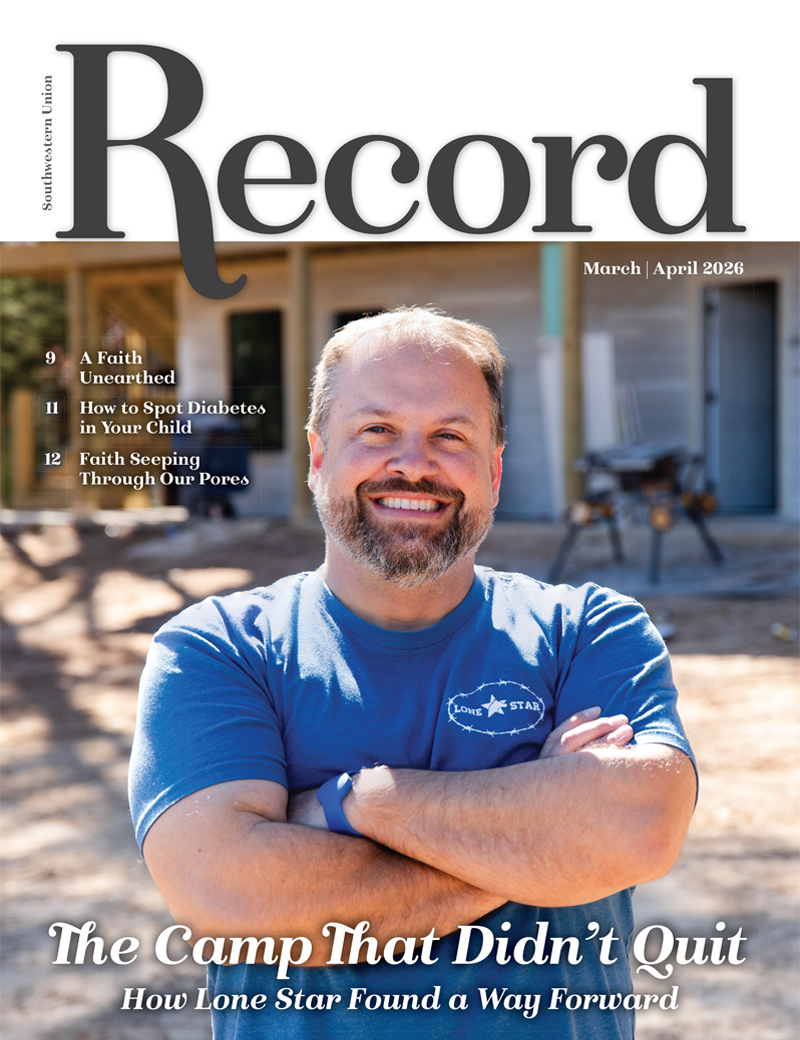What Do We Do With Conflict?

SHREVEPORT, LA. – Being new to the Arkansas-Louisiana (ARKLA) Conference and to the South, I never imagined the diversity of cultures that I would find here. Arkansas-Louisiana is multicultural indeed; we have churches not only for our Latin American members, but also for those from Eastern Europe, the Pacific Islands and Asia. We also have a Korean and a Marshallese church. I am fascinated at how well these groups have integrated themselves into the American South and the communities that have received them. I think that is a testimony to the Christian spirit that pervades the Bible Belt.
Along with the joy of worshiping with people of different backgrounds comes the pain of language barriers, misunderstandings, cultural traditions, stereotypes, and just plain living—all part of living on this side of eternity.
In the Arkansas-Louisiana Conference office we have a young man working in the Treasury department who is from Papua New Guinea. How many times have you heard exciting missionary stories from this part of the world? Brendon Kilanda, pictured above on the left with Rodolfo Alvir, came to Southwestern Adventist University six years ago, spent some time learning English and graduated with an accounting degree. I have enjoyed getting to know him and hearing some of the fascinating stories that have been touched on in the Sabbath School Quarterly so many times. He mentioned how the first missionaries came to Mussau Island as a miracle, as they were pushed off course by a stormy wind and wrecked. The islanders were so angry by the intrusion, they did not allow the stranded people to come to shore. Eventually, the missionaries ran out of food, so they started singing. The hymns had a soothing and calming effect on the local warriors until they were no longer angry, but curious. Somebody said, “When we sing, we are praying twice.” God could work His miracles in the lives of people who did not know Him. Kilanda said that his people have always had only one way of resolving conflict and that was through war. Absolutely no dialogue; just gather your warriors and we will fight. The group that wins will get to decide. But Christianity brought a new way of dealing with conflict and today a great percentage of the island is Christian.
Back to the United States and our present churches. How do we deal with conflict? Sadly, it seems that we have not learned the lesson of Jesus, “Blessed are the peacemakers, for they will be called the children of God.” Matthew 5:9. A peacemaker is someone who actively seeks to reconcile people to God and to one another. This compound word is composed of two words, peace and maker. The word “peace” is “shalom” in Hebrew; it is often used as a greeting and has a connotation of offering health, prosperity, harmony and wholeness to the recipient. It means perfect welfare, serenity, fulfillment, freedom from trouble and liberation from anything which hinders contentment. The word “make” comes from the Greek verb that means “to do” or “to make.” It is a word bursting with energy. It mandates action and initiative. Someone has to drag the combatants to the table and give them a reason to put down their arms. A peacemaker is never passive. They always take the initiative. They are up and doing. As Christians, our first instinct should be to resolve the issue through dialogue. The Lord says, “Come and sit down, let’s talk.” God’s purpose is to resolve, not to fight and destroy. He has come to save, not to condemn. So, members, let’s talk. Let’s learn to fight our battles God’s way, reasoning together and letting the Holy Spirit soften our hearts to love each other more than we love our own ideas. Shalom! Peace to you all! And may God continue to work in our lives and churches.
By Rodolfo J. Alvir
Ministerial Director


